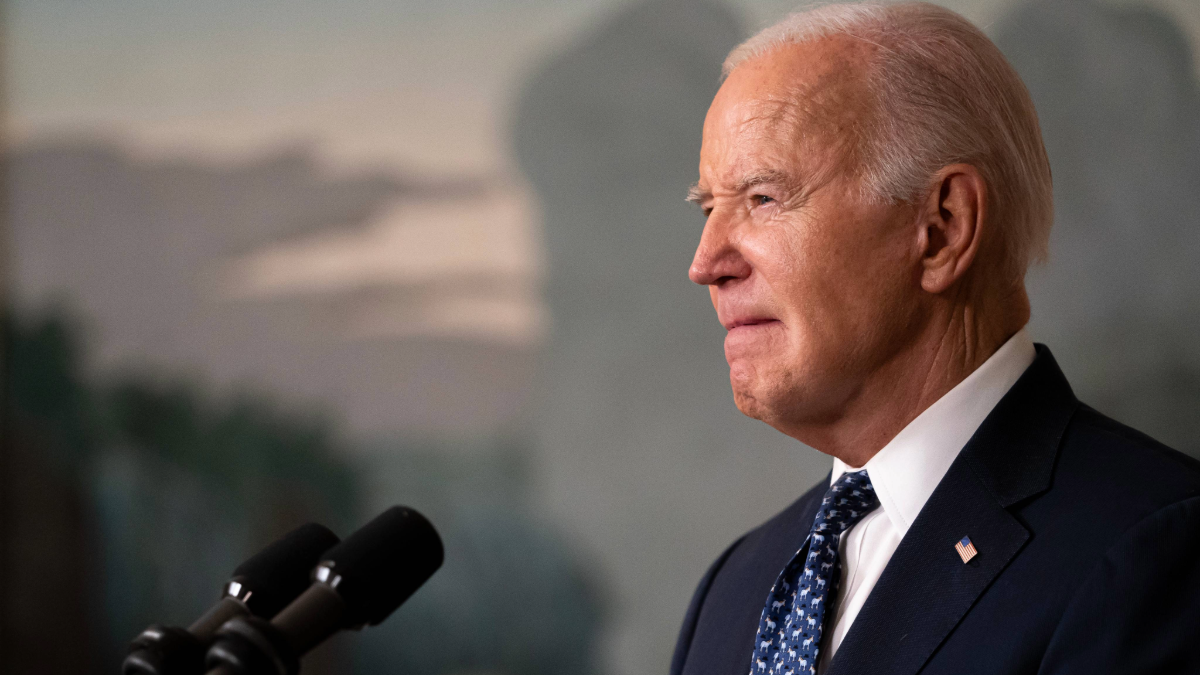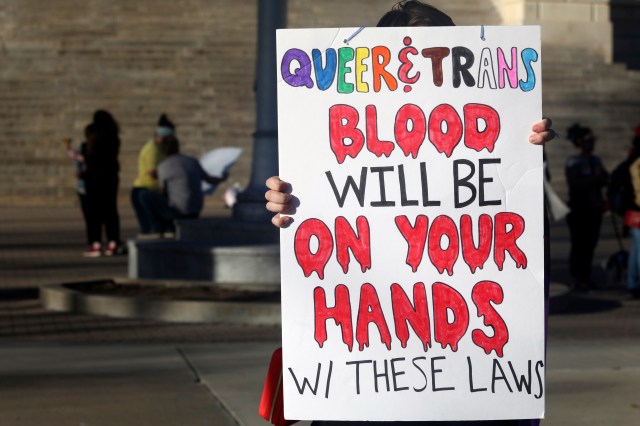
“The Bible was written in a patriarchal time, but it recognizes that people reimagined and reshaped their gender identities back then—just like they do today. . .As a professor of Hebrew Bible at the University of Dayton, I believe that scripture and trans rights are not at odds.”
Dr. Esther Brownsmith, a professor of Hebrew Bible at the University of Dayton, a Catholic college, published this biblical defense of transgender rights in an op-ed for the Dayton Daily News. Brownsmith points to examples throughout the early books of the Bible where heroes of faith defied gender norms:
“Joseph, we are told, wore an ‘amazing technicolor dreamcoat.’ But it wasn’t just any coat; it was, according to 2 Samuel 13:18, the kind of clothing that young princesses used to wear. This is just one of the ways that the Bible indicates that the ‘shapely and beautiful’ Joseph (Genesis 39:6) crossed gender boundaries, and he was not the only one: Deborah led an army, Mordecai breast-fed his cousin Esther, and Daniel was probably a eunuch.”
Brownsmith argues that these stories are more than a point of scholarly interest. They have timely political implications. She addresses an ongoing controversy in the state of Ohio about the rights of trans persons to access gender-affirming care:
“Here in Ohio, we are in the midst of a battle over the rights of trans people, and many voters will turn to the Bible for guidance on these ethical and moral questions. As a professor of Hebrew Bible at the University of Dayton, I believe that scripture and trans rights are not at odds. To the contrary: the Bible calls for us to support society’s most vulnerable members, and that call has rarely been more urgent.
“Our legislature just overturned Gov. DeWine’s veto of House Bill 68, which targets trans youths, but the fight doesn’t stop there. DeWine and the Department of Health have proposed additional new rules that would effectively prohibit gender-affirming care to trans and non-binary people of any age, by requiring them to jump through hoops (such as approval by a medical ethicist) that are arduous, if not impossible. This constitutes clear discrimination against our trans and non-binary neighbors.”
Brownsmith sees a connection between our understanding of gender in the Bible and these contemporary culture wars. “These proposed rules are rooted in ingrained religious biases about gender roles,” she writes. “Those biases are unethical and unbiblical. Our trans neighbors are radiant gifts of God, just like Joseph and Deborah, and they are terrified by our government trying to legislate them out of existence.”
Brownsmith’s essay models allyship in a way that others in positions of influence in Catholic institutions should emulate. She thoughtfully and courageously defends her trans neighbors using her own area of expertise. As a scholar, she points out the limited understandings of Scripture that create stigma. As an educator, she speaks to her experiences with trans and nonbinary students, which have taught her “the vital importance of affirming their identities in the face of a hostile world.”
Voices like Brownsmith’s bring to mind exhortations of the Second Vatican Council, which recognized in the special “apostolate” of lay people a responsibility to use their professional skills and labors to proclaim the gospel to contemporary culture. In the words of the document Apostolicam Actuositatem, “As citizens [laity] must cooperate with other citizens with their own particular skill and on their own responsibility. Everywhere and in all things they must seek the justice of God’s kingdom.”
Brownsmith uses her own particular skill, in this case, Biblical scholarship, to seek the justice of God’s kingdom for her trans neighbors in Ohio. This type of active citizenship embodies the responsibilities of allyship and of faith. In Brownsmith’s words, “As an Ohioan and a Christian, I want to live in a state where all people have the right to flourish in their own gender identity.”
—Ariell Watson Simon (she/her), New Ways Ministry, February 7, 2024



